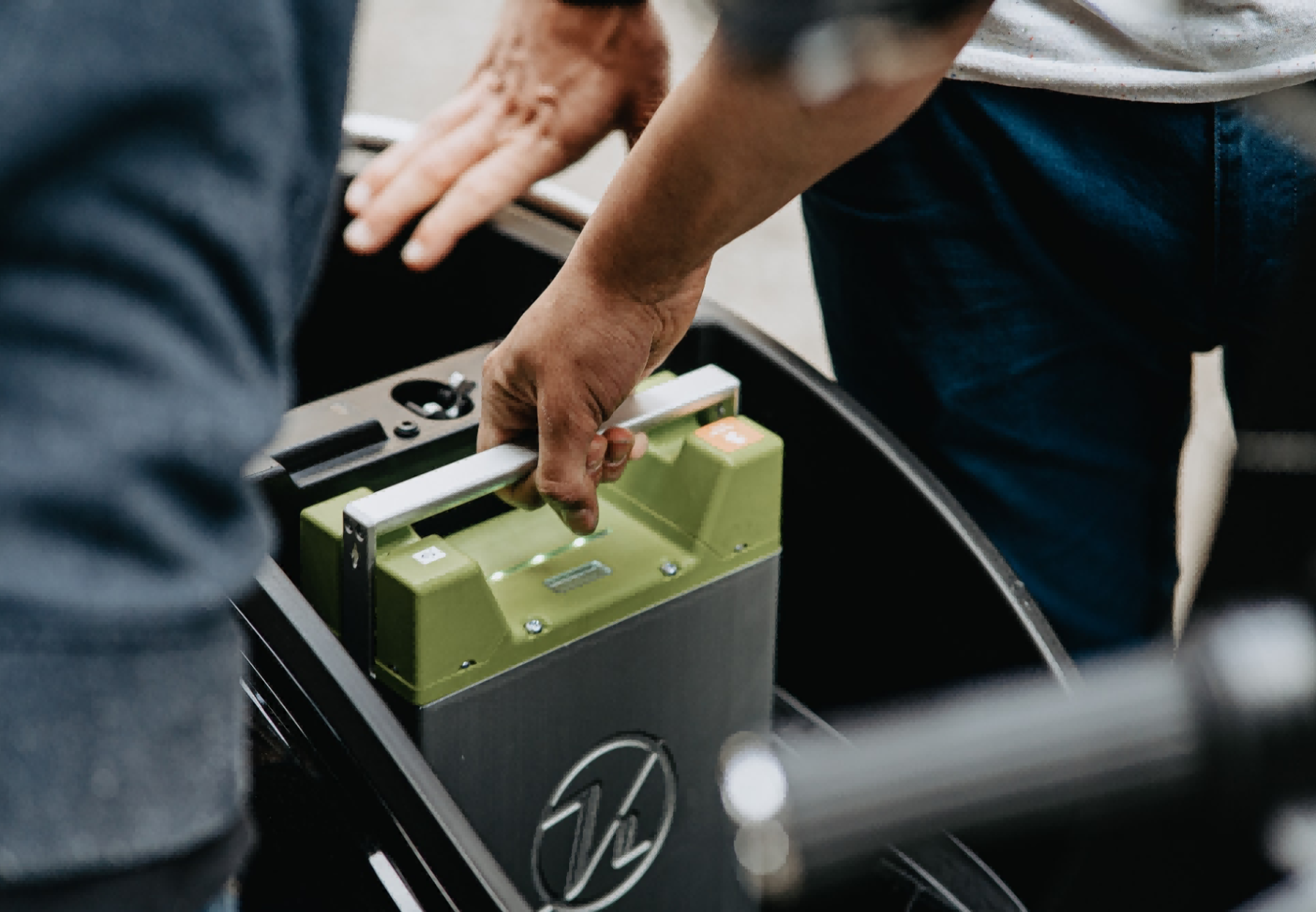Are you looking for a dependable, efficient battery that can be used in many different applications? Look no further than lithium phosphate (LiFePO4) batteries. LiFePO4 is an increasingly popular alternative to ternary lithium batteries due to its remarkable qualities and environmentally friendly nature.
Let’s delve into the reasons why LiFePo4 may have a stronger case for selection than ternary lithium batteries, and gain insight into what either type of battery can bring to your projects. Read on to find out more about LiFePO4 vs. ternary lithium batteries, so you can make an informed decision when considering your next power solution!
What Are Lithium Iron Phosphate and Ternary Lithium Batteries Made Up Of?
Lithium Phosphate and ternary lithium batteries are two of the most popular types of rechargeable batteries. They offer many advantages, from higher energy density to longer lifespans. But what makes LiFePO4 and ternary lithium batteries so special?
LiFePO4 is composed of Lithium Phosphate particles blended with carbonates, hydroxides, or sulfates. This combination gives it a unique set of properties that make it an ideal battery chemistry for high power applications like electric vehicles. It has excellent cycle life – meaning it can be recharged and discharged thousands of times without degrading. It also has higher thermal stability than other chemistries, meaning it is less likely to overheat when used in applications that require frequent high-power discharges.
Ternary lithium batteries are composed of a combination of lithium nickel cobalt manganese oxide (NCM) and graphite. This allows the battery to achieve energy densities that other chemistries can’t match, making them ideal for applications like electric vehicles. The ternary lithium batteries also have an extremely long lifespan, they can last up to 2000 cycles without significant degradation. They also have excellent power handling capabilities, allowing them to quickly discharge high amounts of current when needed.
What Are The Energy Level Differences Between Lithium Phosphate and Ternary Lithium Batteries?
The energy density of a battery determines how much power it can store and deliver compared to its weight. This is an important factor when considering applications that require high-power output or long run times from a compact, lightweight source.
When comparing the energy density of LiFePO4 and ternary lithium batteries, it’s important to note that different formats can provide different levels of power. For example, traditional lead acid batteries have a specific energy rating of 30–40 Wh/Kg while LiFePO4 is rated at 100–120 Wh/Kg – almost three times more than its lead acid counterpart. When considering ternary lithium-ion batteries, they boast an even higher specific energy rating of 160-180Wh/Kg.
LiFePO4 batteries are better suited to applications with lower current drains, such as solar street lights or alarm systems. They also have longer life cycles and can withstand higher temperatures than ternary lithium-ion batteries, making them ideal for demanding environmental conditions.
Safety Differences Between Lithium Iron Phosphate and Ternary Lithium Batteries
When it comes to safety, lithium iron phosphate (LFP) has a number of advantages over ternary lithium. Lithium Phosphate batteries are less likely to overheat and catch fire, making them a safer choice for a wide range of applications.
Here’s a closer look at the safety differences between these two types of batteries:
- Ternary lithium batteries can overheat and catch fire if damaged or abused. This is a particular concern in high-powered applications such as electric vehicles (EVs).
- Lithium Phosphate batteries also have a higher thermal runaway temperature, meaning they can tolerate higher temperatures without catching fire. This makes them safer for use in high-drain applications such as cordless tools and EVs.
- In addition to being less likely to overheat and catch fire, LFP batteries are also more resistant to physical damage. The cells of an LFP battery are encased in steel rather than aluminum, making them more durable.
- Finally, LFP batteries have a longer life cycle than ternary lithium batteries. That’s because the chemistry of an LFP battery is more stable and resistant to degradation over time, resulting in fewer capacity losses with each charge/discharge cycle.
For these reasons, manufacturers across industries are increasingly turning to Lithium Phosphate batteries for applications where safety and durability are key factors. With their lower risk of overheating and physical damage, Lithium Iron Phosphate batteries can provide enhanced peace of mind in high-powered applications such as EVs, cordless tools, and medical devices.
Lithium Iron Phosphate and Ternary Lithium Applications
If safety and durability are your primary concerns, lithium phosphate should be at the top of your list. Not only is it renowned for its superior handling of high-temperature environments – making it a perfect choice for electric motors used in cars, medical devices and military applications – but also boasts an impressive lifespan compared to other types of batteries. In short: no battery offers as much security while maintaining efficiency like lithium phosphate does.
Despite its impressive capabilities, lithium phosphate might not be the best choice for applications with a need for portability due to its slightly heavier weight and bulkier form. In situations like these, lithium-ion technology is usually preferred because it offers greater efficiency in small packages.
In terms of cost, ternary lithium batteries tend to be more expensive than their lithium iron phosphate counterparts. This is largely due to the cost of research and development associated with the production of the technology.
If utilized correctly in the right setting, both kinds of battery can be beneficial for a wide range of industries. In the end, it is up to you to decide which type will best fit your requirements. With so many variables at play, it’s important to do your research thoroughly before making a final decision. The right choice could make all the difference in your product’s success.
No matter which type of battery you choose, it’s always important to remember proper handling and storage procedures. When it comes to ternary lithium batteries, extreme temperatures and humidity can be detrimental; thus, they should remain in a cool and dry area away from any kind of high heat or moisture. Similarly, lithium iron phosphate batteries should also be kept in a cool environment with moderate humidity for optimal performance. Following these guidelines will help ensure that your batteries are able to operate at their best for as long as possible.
Lithium Iron Phosphate and Ternary Lithium Environmental Concerns
When it comes to environmental sustainability, both Lithium Phosphate (LiFePO4) and ternary lithium battery technologies have their pros and cons. LiFePO4 batteries are more stable than ternary lithium batteries and generate fewer hazardous byproducts when disposed of. However, they tend to be larger and heavier than ternary lithium batteries.
On the other hand, ternary lithium batteries yield higher energy densities per unit weight and volume than LiFePO4 cells but often contain toxic materials such as cobalt that present an environmental hazard if not properly recycled or disposed.
In general, Lithium Phosphate batteries are the more sustainable choice due to their lower environmental impact when discarded. It is important to note that both LiFePO4 and ternary lithium batteries can be recycled and should not just be thrown away in order to reduce their negative impact on the environment. If possible, look for opportunities to recycle these types of batteries or ensure they are disposed of properly if no such opportunity exists.
Are Lithium Batteries the Best Option?
Lithium batteries are small, lightweight, and offer a higher energy density than any other type of battery. This means that even though they are much smaller in size, you can still get more power out of them. Furthermore, these cells feature an extremely long cycle life and excellent performance over a wide range of temperatures.
Additionally, unlike traditional lead-acid or nickel-cadmium batteries, which may require frequent maintenance and replacement due to their shorter lifespan, lithium batteries do not need this kind of attention. They typically last for at least 10 years with minimal care requirements and very little degradation in performance during that time. This makes them ideal for consumer use, as well as for more demanding industrial applications.
Lithium batteries are certainly an attractive option when it comes to cost-effectiveness and performance in comparison to the alternatives, however, they do come with some downsides. For instance, they can be hazardous if not handled properly due to their high energy density and can present a risk of fire or explosion if damaged or overcharged. Furthermore, while their capacity may initially seem impressive in comparison to other types of battery, their actual output capacity will decrease over time.
So, Are Lithium Phosphate Batteries Better Than Ternary Lithium Batteries?
In the end, only you can decide if lithium phosphate batteries are better than ternary lithium batteries for your needs. Consider the information above and make a decision based on what is most important to you.
Do you value safety? Long lasting battery life? Fast recharge times? We hope this article helped clear up some of the confusion so that you can make an informed decision about which type of battery will work best for you.
Any questions? Leave a comment below and we’ll be happy to help. We wish you the best of luck in finding the perfect power source for your next project!













